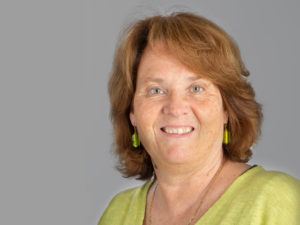
Date: September 19, 2019
Time: 12:30 p.m. - 1:30 p.m.
Location: Maeder Hall, 92 Olden Street, Princeton, N.J. 08540
Kimberly Prather, a Distinguished Professor and the Distinguished Chair in Atmospheric Chemistry at Scripps Institution of Oceanography and the Department of Chemistry and Biochemistry at UC San Diego, spoke on “Unraveling the impacts of humans and oceans on clouds and climate” as part of the 2019/2020 Highlight Seminar Series. This was the first seminar of the 2019/2020 Highlight Seminar Series.

ABSTRACT
Nearly 50 years ago, it was proposed that microbes in the ocean can regulate planetary health by maintaining a homeostatic balance through the exchange of chemical species with the atmosphere. Ocean microbes have been coined the canaries in the coal mine as they show rapid adaptive responses to our changing climate. When waves break, ocean microbes are transferred into the atmosphere and profoundly influence human and planetary health. This presentation will focus on recent studies aimed at advancing the understanding of the control of ocean biology on the atmosphere, clouds, and climate. Highlights will be presented of a novel laboratory mesocosm approach developed in the NSF Center for Aerosol Impacts on Chemistry of the Environment (CAICE) that transfers the full complexity of the ocean/atmosphere system into the laboratory. A discussion is presented on new insights that have been obtained using this approach as well as next steps, and a future vision for how to unravel human versus microbial impacts on the changing Earth’s system.
BIO
Kimberly Prather is the Distinguished Professor and Distinguished Chair in Atmospheric Chemistry in the Department of Chemistry and Biochemistry and at Scripps Institution of Oceanography at the University of California, San Diego. In February 2019, she became the first woman at UC San Diego to be elected to membership in the National Academy of Engineering (NAE) for contributions including “technologies that transformed understanding of aerosols and their impacts on air quality, climate, and human health.”
She is the founding Director of the NSF Center for Aerosol Impacts on Chemistry of the Environment (CAICE), an NSF Center for Chemical Innovation. CAICE focuses on developing a better understanding of how ocean biology influences atmospheric chemistry, clouds, and climate.
She has authored over 200 publications in refereed scientific journals. Some of her more recent awards include election into the National Academy of Engineering (2019), the 2020 American Chemical Society Frank H. Field & Joe L. Franklin Award for Outstanding Achievement in Mass Spectrometry, 2018 Chancellor’s Associates Excellence Award in Research in Science and Engineering, 2015 Haagen-Smit Clean Air Award, the 2010 American Chemical Society Award for Creative Advances in Environmental Science & Technology. She is an elected fellow in the American Academy of Arts and Sciences, American Geophysical Union, and Association for the Advancement of Arts and Sciences.
The 2019/2020 Highlight Seminars Series are held on Thursdays from 12:30 p.m. – 1:30 p.m. in Maeder Hall at the Andlinger Center. Lunch is served at 12:00 noon in the auditorium lobby of Maeder Hall.
Please see the 2019/2020 events calendar for a complete list.
Warming oceans affect cloud patterns
While oceans are known to absorb atmospheric gases, Kimberly Prather said the exchange goes both ways. She found that ocean microbes release gases & that warming oceans alter the gases and amount produced, affecting cloud formation & precipitation patterns.